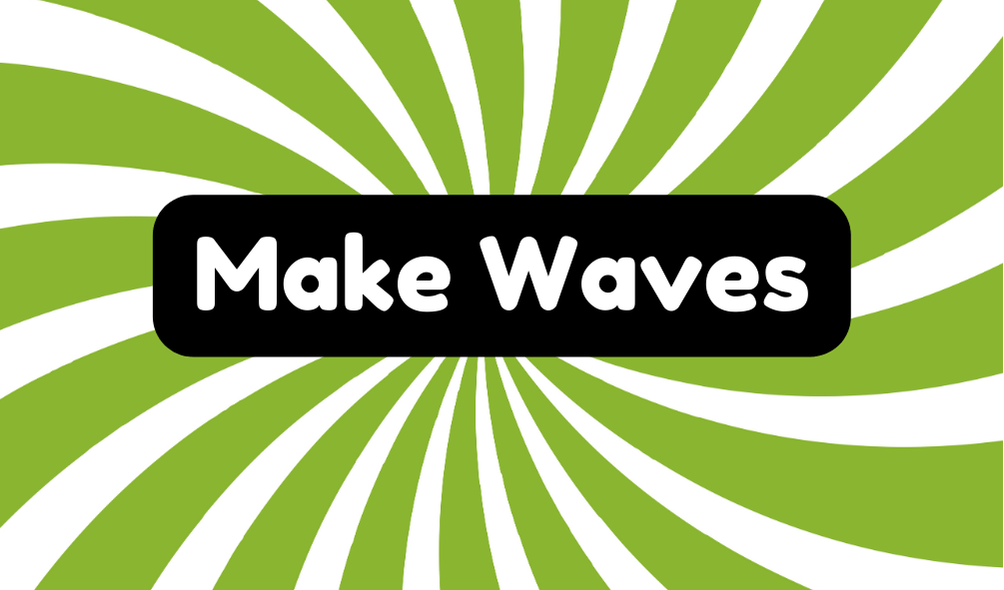The phrase "make waves" signifies creating substantial change or disruption, often in innovative fields or social movements. It originated from maritime language, symbolizing the ripples a moving ship causes. Gaining traction in the mid-20th century, it is associated with civil rights activism and challenges to the status quo. Examples include artists sparking controversy through provocative works or whistleblowers revealing corporate misconduct. Though it promotes necessary change, making waves can incite resistance and debate. The term remains relevant as it highlights the importance of confronting norms to achieve progress, suggesting there is much more to explore in this compelling concept.
Synonyms
When considering the phrase "make waves," several synonyms effectively capture its essence. These related expressions evoke the idea of creating disruption or notable change, which is essential in innovative fields. The following synonyms list illustrates this concept:
- Stir the pot: inciting controversy or engagement.
- Rock the boat: challenging the established status quo.
- Raise a ruckus: creating significant disturbance.
- Break the mold: introducing new perspectives or approaches.
These expressions convey the dynamic nature of innovation, often stirring various reactions—both positive and negative. While disrupting norms can be beneficial, it also invites scrutiny and resistance. Understanding these synonyms can help individuals navigate conversations around change with greater awareness of potential implications and the reactions they may provoke.
Example of Sentences
Making waves often requires a willingness to embrace the unexpected consequences that accompany challenging the norm. In various fields, taking bold actions can lead to significant cultural impact and societal change. Consider the following examples:
- A groundbreaking startup introduced innovative technology that revolutionized communication.
- An artist's provocative installation sparked heated debates in the community, prompting new discussions about representation.
- A grassroots movement organized protests that made waves in local politics, demanding accountability.
- A whistleblower's revelations disrupted corporate practices, fostering an environment of transparency.
These instances illustrate that while making waves can invite controversy, the potential for lasting change is often worth the risk. Embracing innovation means being prepared for the turbulence that accompanies it.
Origin
The idiom "make waves" has its roots in maritime language, symbolizing the ripples created by a ship moving through water. This expression emerged in the mid-20th century, reflecting a historical significance tied to social and political upheaval. The term gained momentum during the 1960s, a time marked by civil rights activism and cultural shifts that challenged established norms. Such idiomatic expressions resonate particularly well in contexts demanding innovation and transformation, illustrating the impact of individuals willing to disrupt the status quo. While many embrace the notion of "making waves," it is essential to recognize that such actions often provoke controversy and resistance. Ultimately, understanding these implications is vital for maneuvering discussions around change and progress.
Collocations
Collocations associated with the idiom "make waves" often highlight its dynamic implications. In professional environments, this expression may signify various contexts where innovation meets resistance, leading to a powerful mix of collaborative chaos and disruption dynamics. Consider these scenarios:
- Making waves in team discussions challenges traditional ideas.
- Making waves through disruptive technology transforms industries.
- Making waves during public protests galvanizes community action.
- Making waves with radical marketing strategies reshapes brand narratives.
Each of these collocations illustrates the balancing act between generating impactful change and steering potential backlash. Understanding these associations can enhance one's strategic approach in environments ripe for innovation, where each wave can reshape the landscape or provoke unforeseen challenges.
How to Use in Everyday Language
Incorporating the idiom "make waves" into everyday language can effectively convey dynamic change or challenge established norms. This phrase resonates particularly well in contexts involving disruptive innovation and social activism, where breaking away from tradition is often necessary. When discussing new technologies or social movements, stating that a particular initiative is "making waves" suggests significant impact and attention. However, be aware that making waves can also lead to resistance and conflict, particularly in environments resistant to change. It's crucial to use this idiom judiciously, as it implies both courage and the potential for backlash. Ultimately, understanding the nuances of "making waves" can enhance discussions about progress and the complexities of challenging the status quo.
Why Is It Still Relevant Today?
Why is the idiom "make waves" still relevant in today's rapidly changing society? In an era where social movements frequently challenge the status quo, the phrase embodies the spirit of innovation and cultural impact. It serves as a reminder that meaningful change often requires disruption and the courage to confront established norms. From climate activism to tech advancements, making waves encourages individuals to voice their opinions and push boundaries. However, the implications are often complex; while some may champion the act, others may resist it, fearing the potential fallout. Understanding the relevance of this idiom prompts us to reflect on our role in society and the necessity of embracing uncertainty for progress. Ultimately, making waves can lead to essential dialogues and transformative actions.







